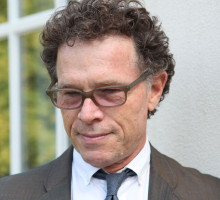
Reviews
Tiffany is persuasive in arguing that the now ubiquitous idea of 'kitsch' originates in poetry, poetic language, and the articulated views of many players in the greater culture... The value of the book lies in application: understanding the origins of poetic 'kitsch' allows one to understand elite culture better and to use that knowledge as a link between elite culture and vernacular culture.
My Silver Planet offers a thrilling new way to read poetry from the past two hundred years.
A strength of Tiffany’s book as a whole is that its history of the relationship of lyric poetry and kitsch from graveyard gothic to Pound reveals the pleasures and anxieties of an art forever seeking to justify its artifices in a natural authority, whether in the rhythms of labor, the rhythms of the sexual body, an essentialism of blood or land, or a totalitarian politics.
Written with great verve, this lively successor to Infidel Poetics explores kitsch as a bridge between elite and vernacular poetics, exposing the historical role of poetry in the thinking of kitsch, from the ballad revival and forgeries of the eighteenth century to Pound and New York School poets. Tiffany’s irreverent challenge to modernist critique of kitsch generates a new story about the development of modern poetry.
Daniel Tiffany’s My Silver Planet is the most exciting and original book on poetry, indeed one of the most exciting scholarly books on anything, I have read in years. Tiffany’s energy, innovation, ambition, and eloquence are exemplary, as are his vertiginous powers of explication and his negative capability. The book is both convincing and startling.
Kitsch is others' (inevitably weird or disgusting) enjoyment objects. I'm sorry to break it to the avant-garde, but in an ecological age—that is, an age that is genuinely post-modern (note the hyphen)—art will melt into kitsch, because there will be no single, authoritative scale from which to judge. Daniel Tiffany's brilliant and fresh analysis of kitsch is just what we require. Someone needed to go deep and delve into form rather than simply tossing opinions around. At last, Tiffany gives us a startling vocabulary for exploring kitsch's 'delirious substance.' And his long history of its origins is welcome indeed.
In disclosing the obscured origins of kitsch in poetry (as opposed to industrial mass culture, as we have so often been told), Daniel Tiffany makes a truly new, startling, and convincing argument that dramatically overturns our basic understandings of both poetry and kitsch. He also unleashes a dazzling flood of other surprising literary-historical insights, including, above all, poetry’s deepest grounding in the dialectical relationship between obscurity and conventionality. Tiffany’s erudition is as stunning as his originality.
Book Details
1. Arresting Poetry
Unpopular Pop
Missing Verses
Bogus
Twice Made
Mass Ornament
2. Poetic Diction and the Substance of Kitsch
Dreams, Mottos, Gossip
Chatter and Virtuosity
Phraseology
Morbid Animation
3
1. Arresting Poetry
Unpopular Pop
Missing Verses
Bogus
Twice Made
Mass Ornament
2. Poetic Diction and the Substance of Kitsch
Dreams, Mottos, Gossip
Chatter and Virtuosity
Phraseology
Morbid Animation
3. Miscreant
Doppelgänger
Synthetic Vernaculars
Poetry vs. Literature
Commonplace
Lyric Fatality
Thieves' Latin
4. The Spurious Progeny of Bare Nature
Balladry and the Burden of Popular Culture
Exploded Beings and After-Poets
Live Burial
5. Illiterature
Refrain
Lullaby Logic
The Cult of Simplicity
Pets, Trifles, Toys
Gothic Verse and Melodrama
Silver Proxy
6. Queer Idylls
Topologies of Privacy
Reliques
Poetaster
Kitsch, Camp, and Homo-fascism
1800 Words
Poison
7. Kitsching the Cantos
Vortex and Cream Puff
Contraband
The Kitsch of Apocalypse
Epic, Rhapsody, Seizure
Bad Infinity
Ethnofascist Souvenirs
8. Junk
Thermofax
Dada Kitsch
After After-Poets
Coterie and Melodrama
The Metaphysics of Kitsch
9. Inventing Clichés
Plastic Poetry
Liar, Liar
Afterword
In the Poisonous Candy Factory
Counterfeit Capital
Notes
Index






